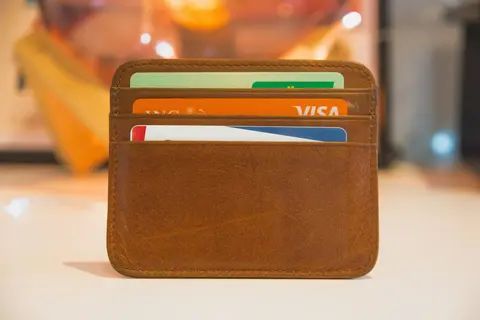Money advice to my 18-year-old self
If you could go back in time, what kind of advice would you give yourself? For me, there’s a lot I’d like to say…
- Keep your eyes on the road when driving (accidents are expensive).
- Don’t study something you can’t see yourself doing every day.
- Stop trying to fix people… especially in relationships.
- Adulting is basically accumulating one responsibility after another, and you can’t give them back.

But the most important advice that I’d give myself is about money. Having studied the topic for years, and having taught children, teenagers and adults on the subject, I’ve seen first-hand how healthy money habits can dramatically change a child’s future.
The biggest tragedy of our time is that we don’t learn about money at school. We’re taught basic literacy skills, how to read, write and do maths… but we’re never taught financial literacy.
Once, when I was a teacher, a very excited Grade 1 came up to me with a fistful of coins. “Look at what I got at the tuckshop! I gave them the blue paper (aka R100) and they gave me back all of this!!!”
Yes, it’s funny, but the truth is that money is a great big mystery to most people. And it stays that way for most of their lives.
Don’t worry though, because I’m about to share the money advice I’d give to my 18-year-old self. You can apply it to your life, your child’s or anyone else’s. Like most of life’s principles it’s simple to understand and challenging to apply.
Don’t idolise money, but respect it
Money isn’t the enemy, and it isn’t the key to happiness. It’s simply a tool. If you use it well, it can open doors and give you security. Ignore it or mistreat it, and it’ll lead to stress and hardship. Learning to respect money means understanding its value and how to manage it wisely, without letting it control your decisions or self-worth.
Build healthy money habits early
Most of us stumble through our twenties making financial mistakes – spending recklessly, avoiding budgeting, or falling into debt. The truth is, our habits around money are formed early, and they can shape our future financial success or struggles.
Start by asking yourself: What are my money habits? Are you a saver, a spender, or an avoider? Understanding your natural tendencies with money is the answer to developing a better relationship with it.
- If you tend to avoid dealing with finances, challenge yourself to be more engaged.
- If you’re a spender, set limits and focus on long-term goals.
- If you’re a saver, great! But make sure you’re also making your money work for you, not just sitting in a savings account.
Robert Kiyosaki’s three money mindsets
As a teacher, I’ve come to appreciate the lessons from people like Robert Kiyosaki, who outlines three key money mindsets: poor, middle-class, and wealthy. These mindsets aren’t about how much money you have, and they’re not about the colour of your skin. They’re about how you think about and use money.
- The poor mindset focuses on survival and immediate needs, living pay check to pay check. Make R100, spend R100.
- The middle-class mindset is about working hard and saving, but sometimes getting stuck in the “rat race” of working just to maintain a lifestyle. Make R100, borrow R10,000 and spend the next five years paying it back with interest.
- The wealthy mindset understands how to make money work for you through investments and financial literacy. Make R100, spend R80, make that R20 work for you so that one day you don’t need to work anymore.
Looking back, I wish I’d been introduced to these concepts earlier. If I had known that wealth isn’t just about earning more but about thinking differently, I would have used my money very differently.
Money magnifies what’s already there
Money doesn’t change us. It’s a bit like a magnifying glass, exposing what’s already there. If you’re a generous person, you’re going to be even more generous with more money. If you’re stingy and mean when you don’t have money… well, having money isn’t going to change you.
Educate yourself
Heartlines has spent years researching and refining some of the best ways to get ahead with your money. And it all starts with implementing these five money values. Remember, no one is going to educate you better than you can educate yourself. Take time to learn about money, and then apply what you’re learning about it. Do that and you’ll never have to worry about giving your younger self advice.

Marco Martins
Marco is an educator, author, and leadership coach with a passion for empowering young people through financial literacy, entrepreneurship and personal development programs. More importantly, he's a father, a husband and a son of God.
Featured
